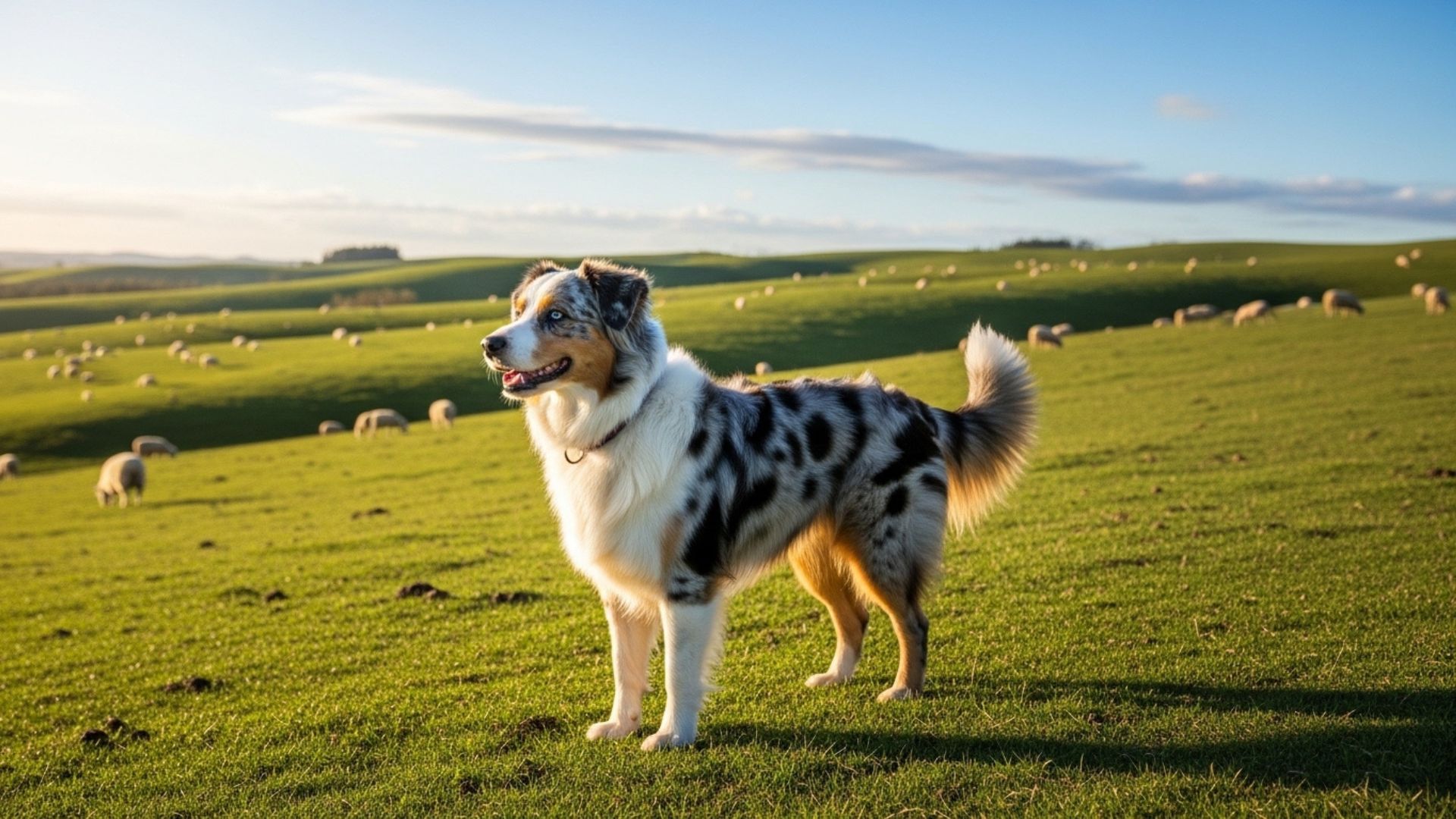Life on a farm or in the countryside has a certain magic to it — open skies, fresh air, and the steady rhythm of nature all around. But behind every successful day on the land, there’s often a hardworking dog quietly keeping things in order.
For centuries, humans have relied on dogs not just for companionship, but for real work — helping herd, guard, and manage livestock with intelligence and instinct. Over time, certain dogs developed the remarkable ability to work independently, confidently handling farm tasks without constant human direction.
If you’ve ever dreamed of rural living — perhaps picturing yourself with a trusty dog trotting beside you through wide pastures — it’s worth knowing that not every pup thrives in that environment.
Some dogs are true natural-born farmhands, capable of thinking on their own and managing livestock even when you’re out of sight.
Key Takeaways
Uncover the hidden strengths of breeds that can think, work, and guard without constant supervision.
Learn how small dogs like the Lancashire Heeler rival giants like the Great Pyrenees in farm smarts.
Find out which breeds balance independence with deep loyalty to their people and livestock.
Discover what makes these self-sufficient workers the backbone of traditional and modern farm life.
Independent Farming Dog Breeds That Work Well Alone
1. Pembroke Welsh Corgi
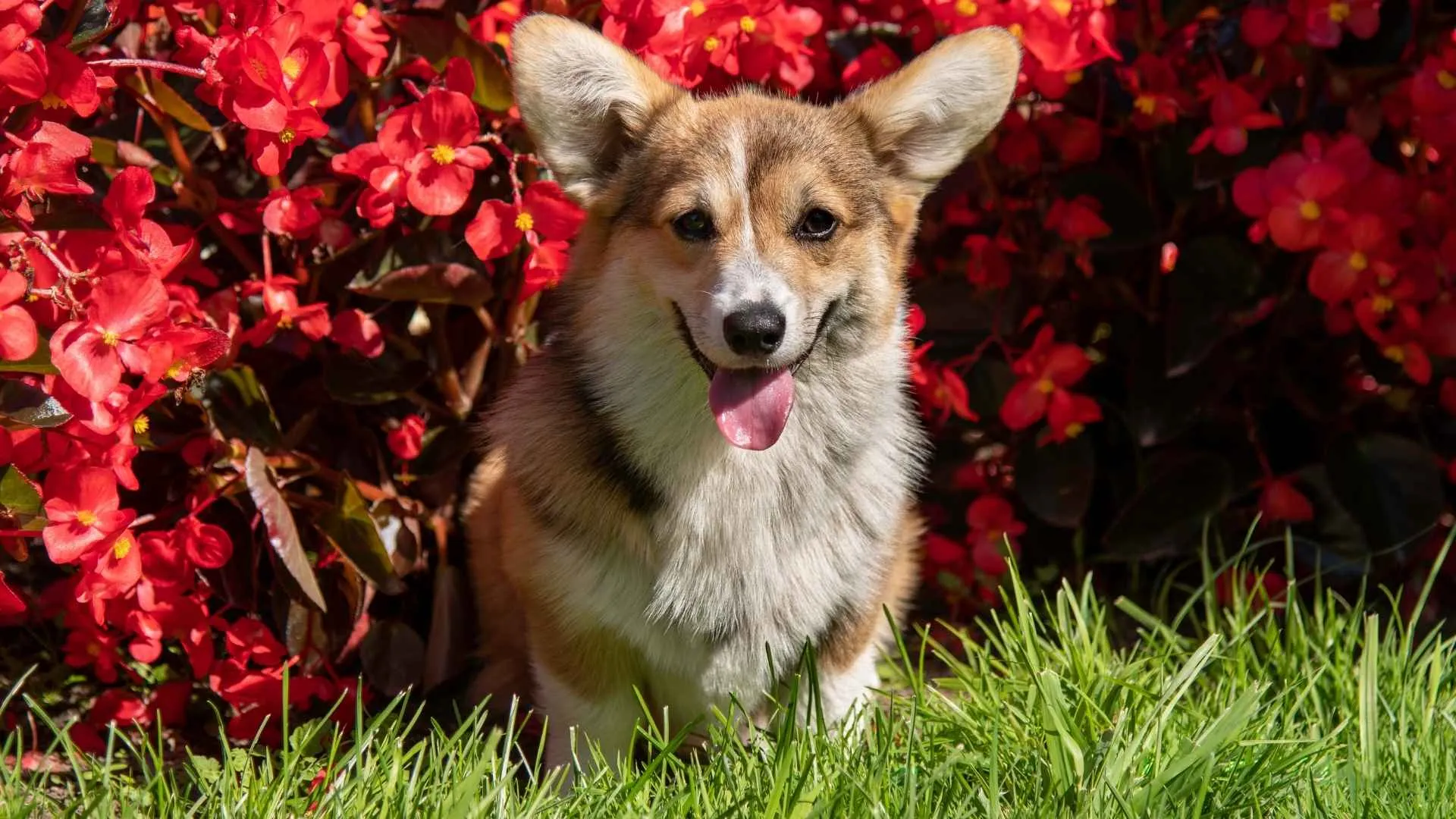
The Pembroke Welsh Corgi, often called the Pembroke or simply the Corgi, is one of the most popular dog breeds in the world. Originally bred in Wales to herd sheep and cattle, these clever little workers played a vital role in the country’s farming and textile industries.
Over time, their mix of intelligence, bravery, and cheerful nature has made them loved by farmers and families alike.
Small but mighty, the Corgi may be low to the ground, but it’s built for hard work. Agile, strong, and determined, this breed was developed to move livestock with confidence and precision. The sharp instincts of these sturdy dogs allow them to handle farm duties with ease.
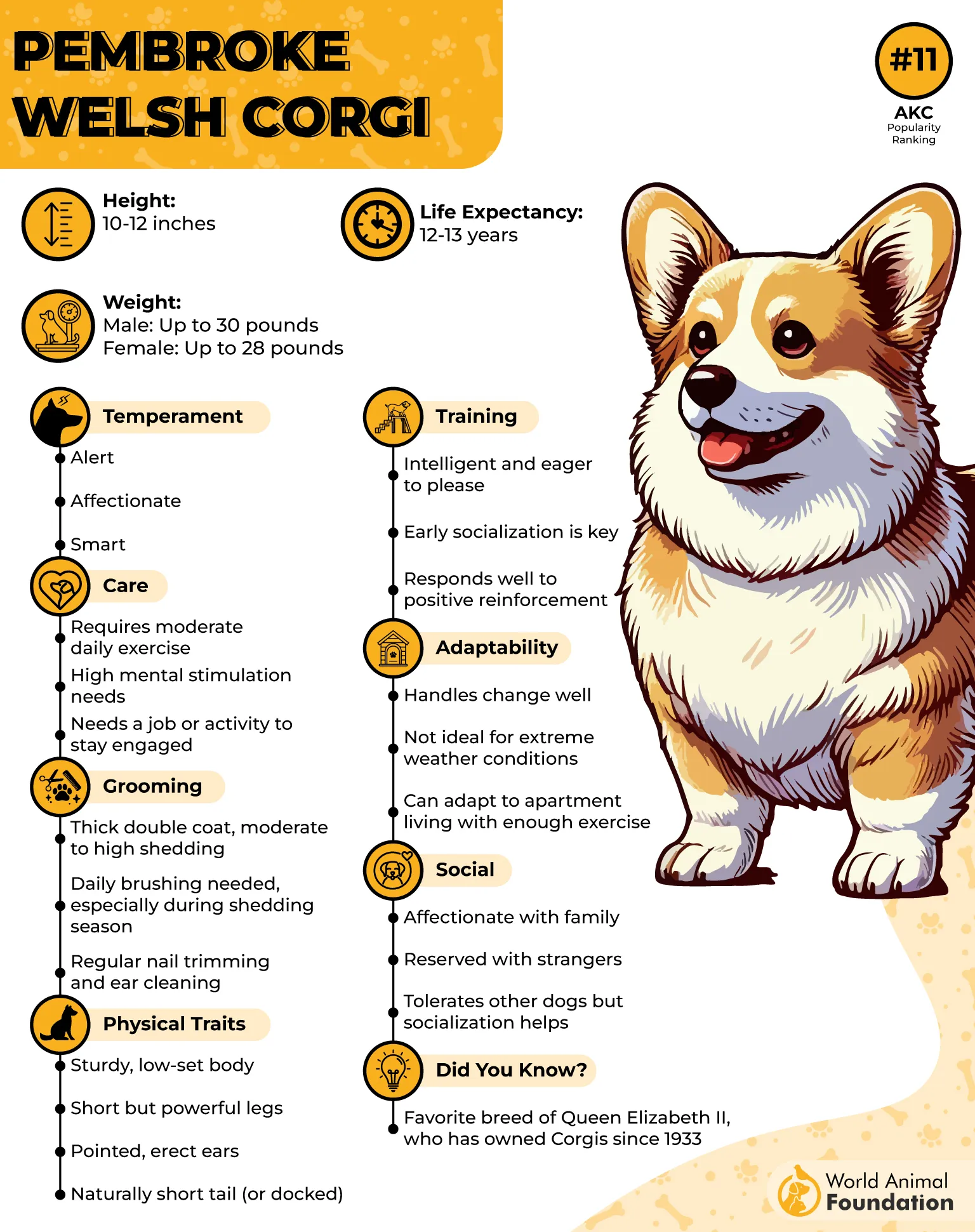
With their short or naturally bobbed tails and lighter frames, Pembrokes stand out from their close relatives, the Cardigan Welsh Corgis.
Why They’re Good Farm Dogs:
Fearless and independent when working with livestock
Quick learners who respond well to early training
Naturally alert, making excellent watchdogs
Energetic, agile, and always ready to work
Loyal and affectionate, forming close bonds with their family members
2. German Shepherd
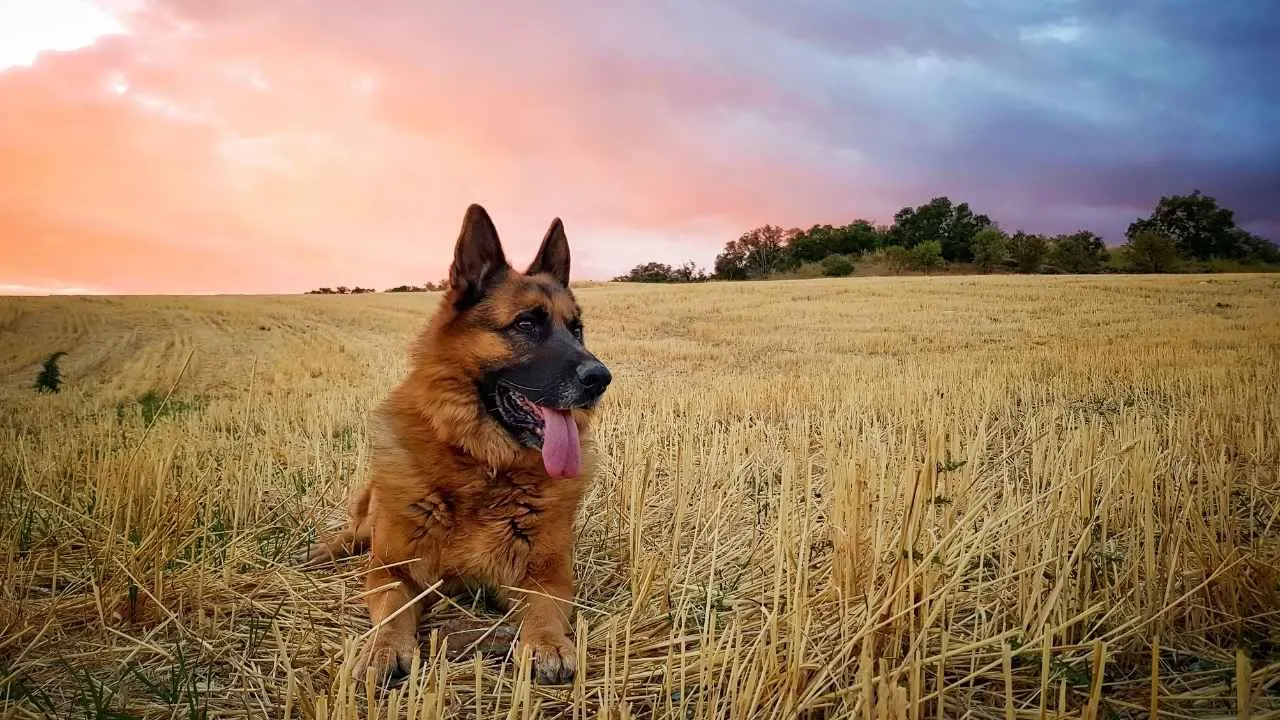
The German Shepherd is one of the most respected and recognizable dog breeds in the world. Developed in Germany from traditional herding and farm dogs, this breed quickly became known for its intelligence, strength, and loyalty.
Originally bred to herd and protect livestock, the German Shepherd later proved its versatility in many roles — from police and military work to guiding the blind and search-and-rescue missions. Their courage and character have earned them admiration and trust for generations.
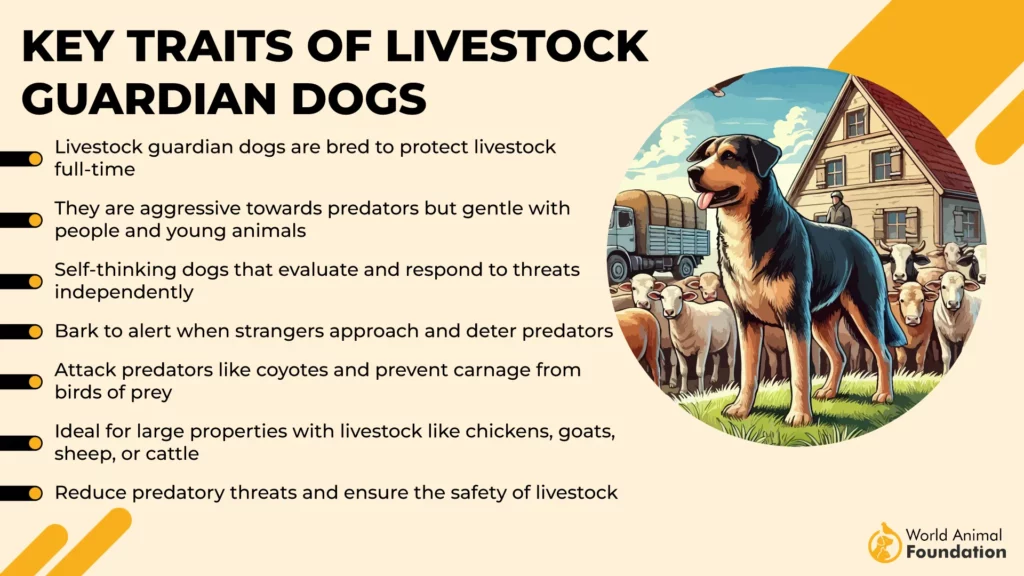
Strong, smart, and noble, German Shepherds are muscular and athletic dogs built for both work and endurance. They have a thick coat that can be straight or slightly wavy, usually in shades of black and tan or gray and black.

Known for their alert expression and calm confidence, these dogs combine elegance with power. With proper training, they are obedient, protective, and deeply devoted family dogs.
Why They’re Good Farm Dogs:
Highly intelligent and easy to train
Excellent natural herding and guarding instincts
Loyal and brave, making good guard dogs
Adaptable to various farm tasks and conditions
Protective of livestock and family alike
🎧 Dogcast
Episode 10 — Halloween Special
If you don’t hear sound, tap the button above to enable audio.
3. Australian Shepherd
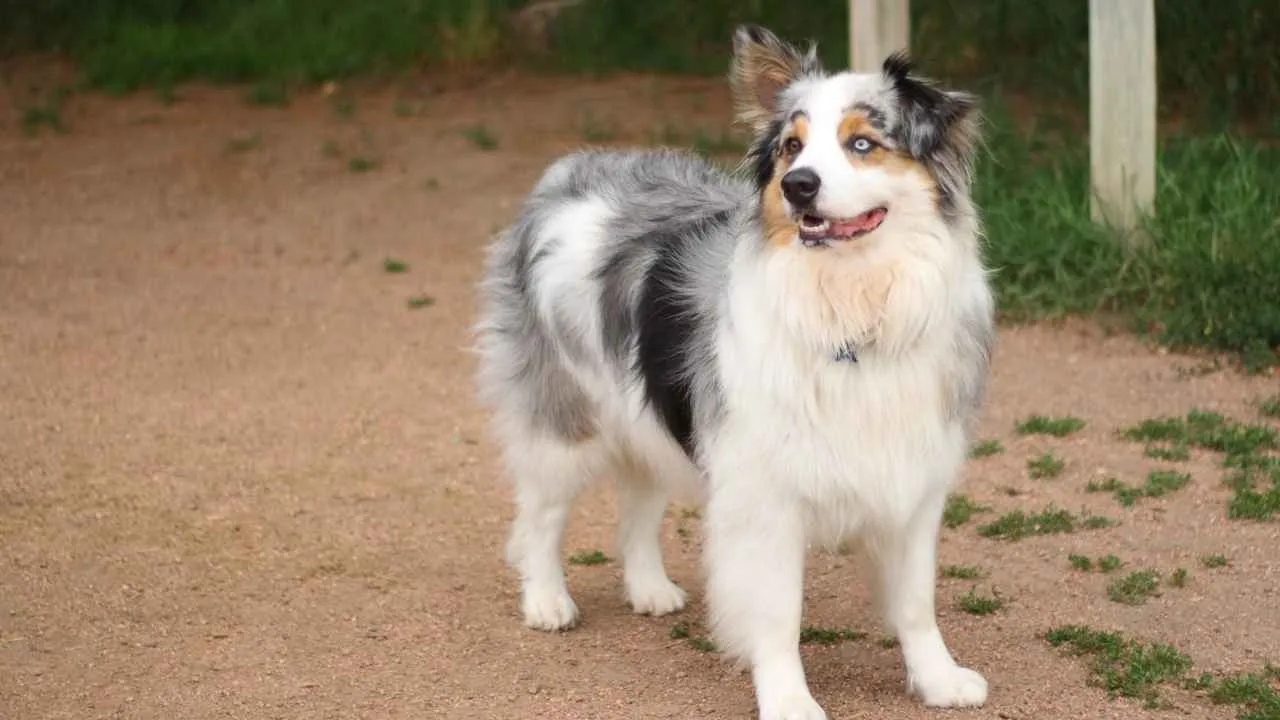
The Australian Shepherd, often called the “Aussie,” is a smart, energetic, and hardworking herding dog. Despite the name, the breed was actually developed in the United States during the late 1800s.
Their ancestors came from Europe through Australia, and they quickly became the cowboys’ herding dog of choice, as stated by the AKC. Known for their striking coats and sharp eyes, Aussies are full of personality, energy, and drive.
Built for work and adventure, the Australian Shepherd has a lean, muscular build and endless stamina. These dogs are happiest when they have a job to do—whether it’s herding cattle, guarding the farm, or joining in outdoor activities.
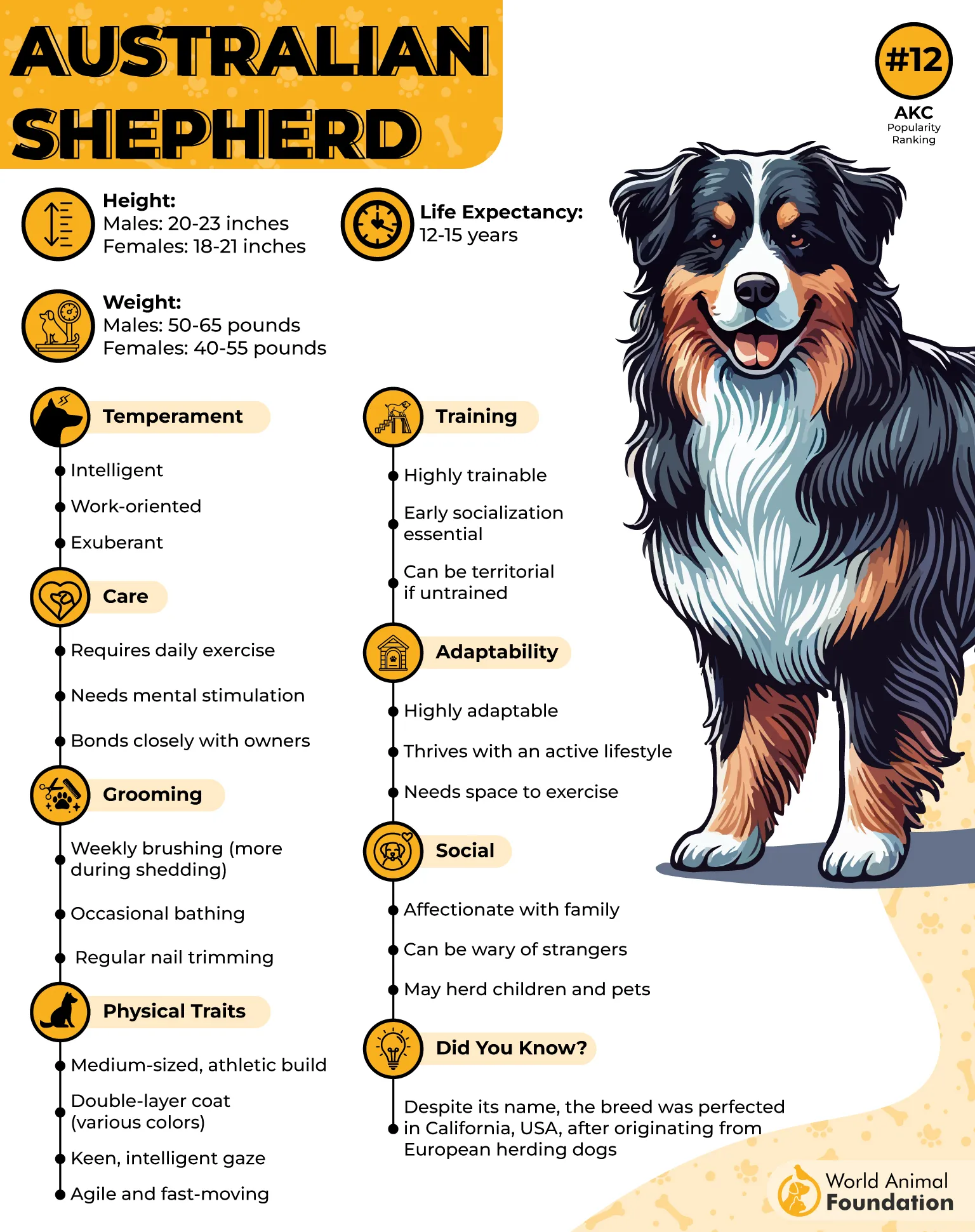
Their herding instinct is so strong that they often try to round up other animals, and sometimes even people! While Aussies are affectionate and eager to please, they can be shy around strangers, so early socialization is key.
Why They’re Good Farm Dogs:
Intelligent, focused, and quick to learn new tasks
Strong herding instincts and a tireless work ethic
Energetic and happiest with space to run and explore
Loyal and devoted to their owners
Adapt well to life on large properties or ranches
4. Lancashire Heeler
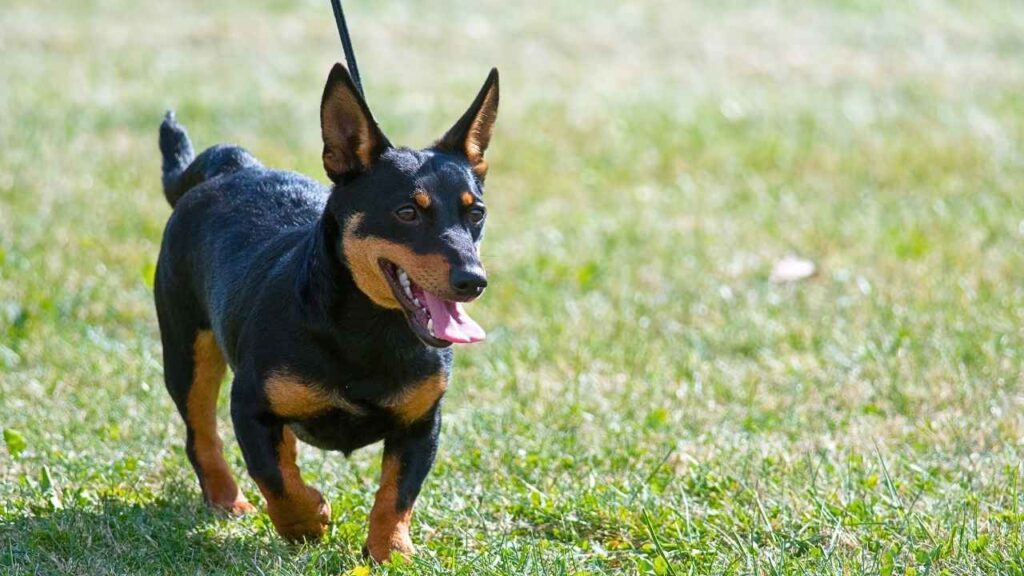
The Lancashire Heeler is a small but tough working dog from Great Britain. Believed to have originated as early as the 1600s, this rare breed was developed to help drive cattle from Wales to the markets in the Ormskirk area.
Thought to be a mix between the Welsh Corgi and the Manchester Terrier, the Lancashire Heeler inherited the Corgi’s herding instincts and the Terrier’s alert, lively nature. Over time, they became known for their versatility—herding livestock by day and hunting vermin by night.
Compact and full of character, this breed is sturdy and intelligent with a strong sense of devotion. They have a short, weather-resistant coat, usually black and tan or liver and tan, and an alert expression that shows their playful spirit.
Their erect ears and signature “Heeler Smile” make them instantly charming. Despite their small size, they are confident and always ready to take on a task. Friendly and loyal with family, they can be cautious around strangers, so the right training and socialization are important.
Why They’re Good Farm Dogs:
Natural herding and vermin-hunting instincts
Quick learners with plenty of energy
Brave, adaptable, and hardworking
Low-maintenance coat suited to outdoor life
Loyal and affectionate with their families
5. Australian Cattle Dog
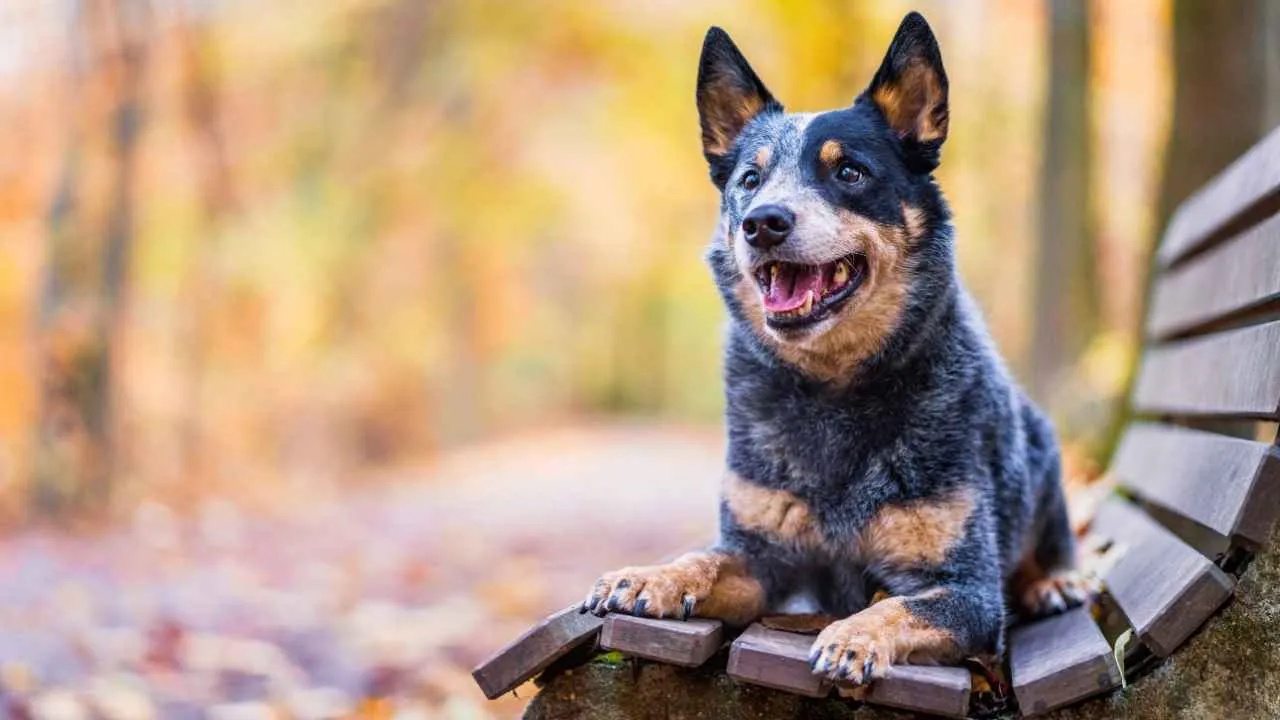
The Australian Cattle Dog, also known as the Blue Heeler or Red Heeler, is a hardworking and strong-willed herding breed with roots that trace back to the wild Australian dingo.
Developed in the 19th century to handle cattle in the tough Outback, these dogs were bred for endurance, intelligence, and determination. Their name, “Heeler,” comes from their clever herding style—nipping at the heels of livestock to keep them moving in line, as mentioned by PetMD.
The Australian Cattle Dog is compact and muscular, built for long days of work. They are known for their striking blue or red speckled coats and their sharp, alert expressions. These dogs are natural problem-solvers and quick thinkers—often outsmarting their owners if not kept busy!
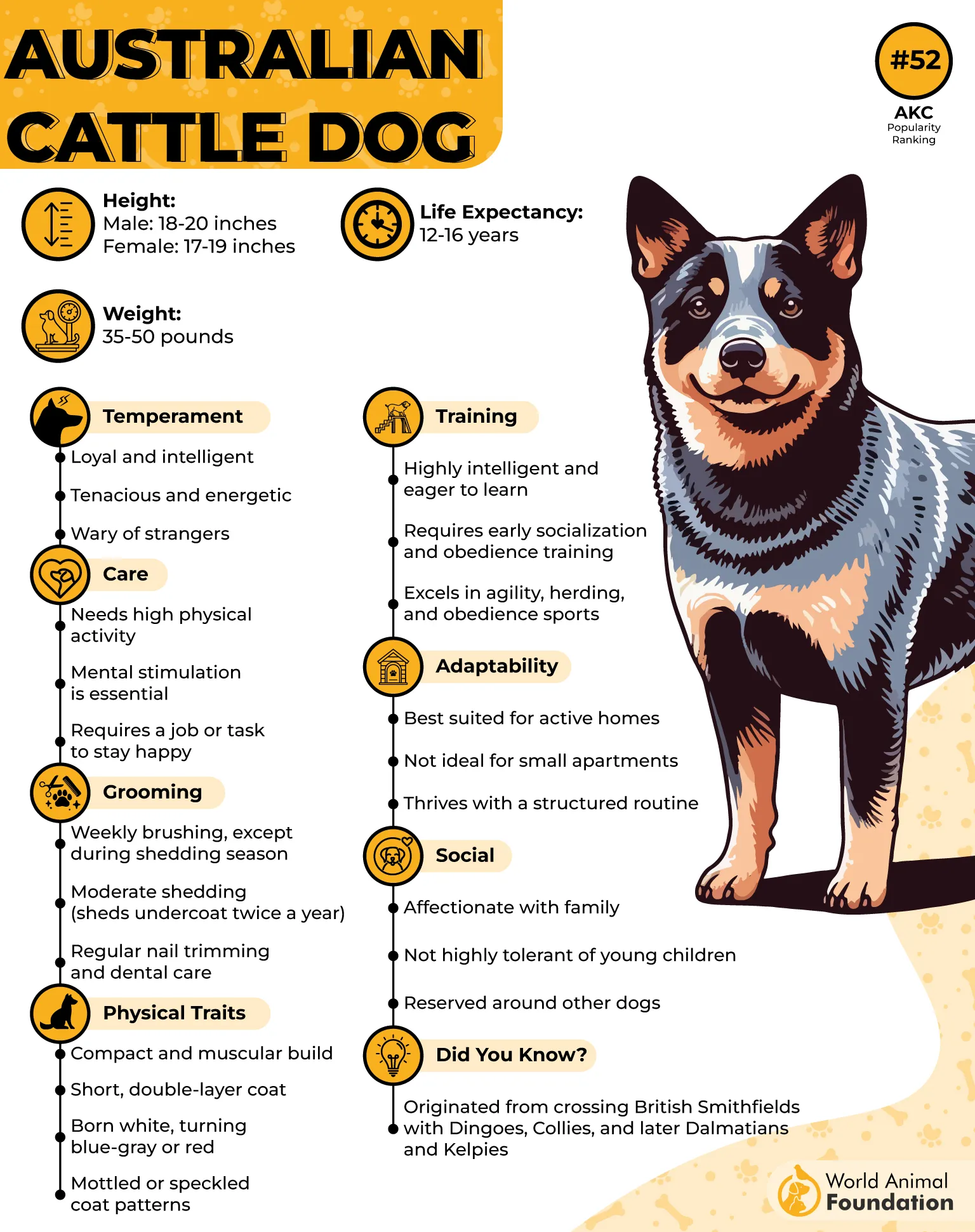
While loyal and affectionate with their families, they can be wary of strangers, which makes them excellent watchdogs. Without enough exercise or mental challenges, they may become bored and mischievous.
Why They’re Good Farm Dogs:
Born herders with strong instincts and endurance
Extremely intelligent and eager to learn
Fearless, loyal, and always ready to work
Great watchdogs, alert and protective
Thrive with regular tasks, exercise, and mental stimulation
6. Akbash
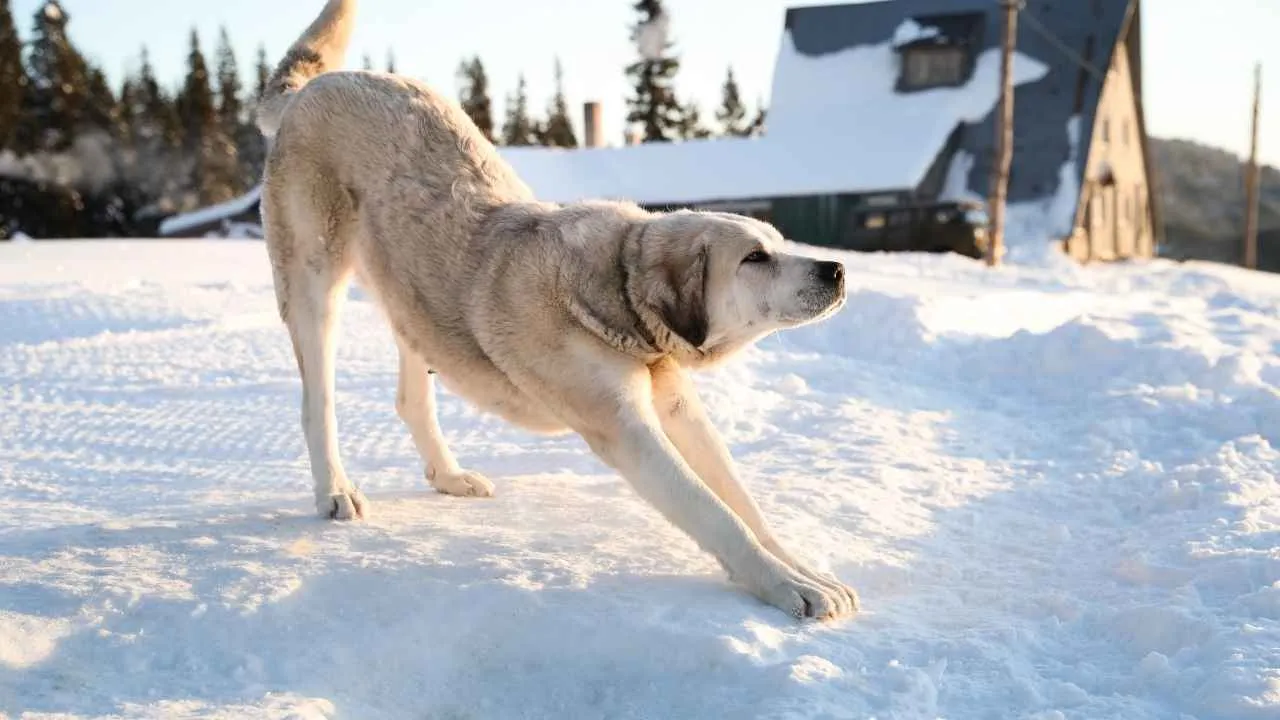
The Akbash is a large, noble, and protective guardian dog that hails from Turkey. Bred for centuries to protect livestock from predators, this ancient breed is known for its calm confidence and unwavering loyalty.
The Akbash combines quiet strength with sharp awareness, making it a natural-born protector of flocks, homes, and families. Graceful yet powerful, the Akbash carries itself with dignity and poise. Its beautiful white coat and dark, expressive eyes give it a striking appearance.
Unlike more vocal breeds, the Akbash tends to have an observant and calm temperament, watching carefully before taking action. They are affectionate and gentle family pets, but alert and fearless when guarding livestock or property.
Why They’re Good Farm Dogs:
Natural protectors with strong guarding instincts
Calm, patient, and steady when handling livestock
Independent thinkers who can work well alone
Loyal and deeply bonded to their owners
Courageous and reliable in deterring predators
7. Great Pyrenees
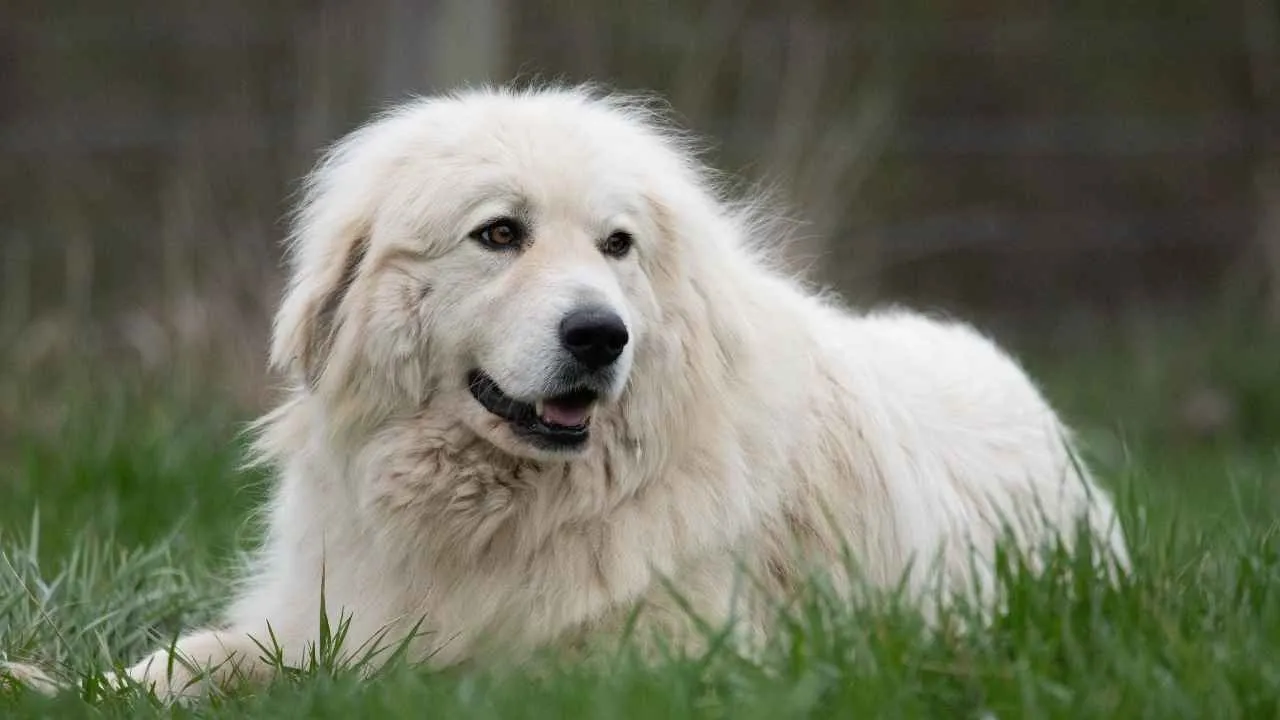
The Great Pyrenees is a majestic, powerful, and gentle giant known for its long history as a livestock guardian. Originally bred in the Pyrenees Mountains between France and Spain, this breed was developed to protect sheep from predators such as wolves and bears.
Their thick white coat helped them blend into snowy mountain terrain, allowing them to watch over their flock unnoticed. Today, they remain loyal protectors, both on farms and in family homes.
Calm and courageous, the Great Pyrenees is famous for its steady temperament and natural guarding instincts. Beneath its fluffy, weatherproof coat lies a brave and dependable worker.
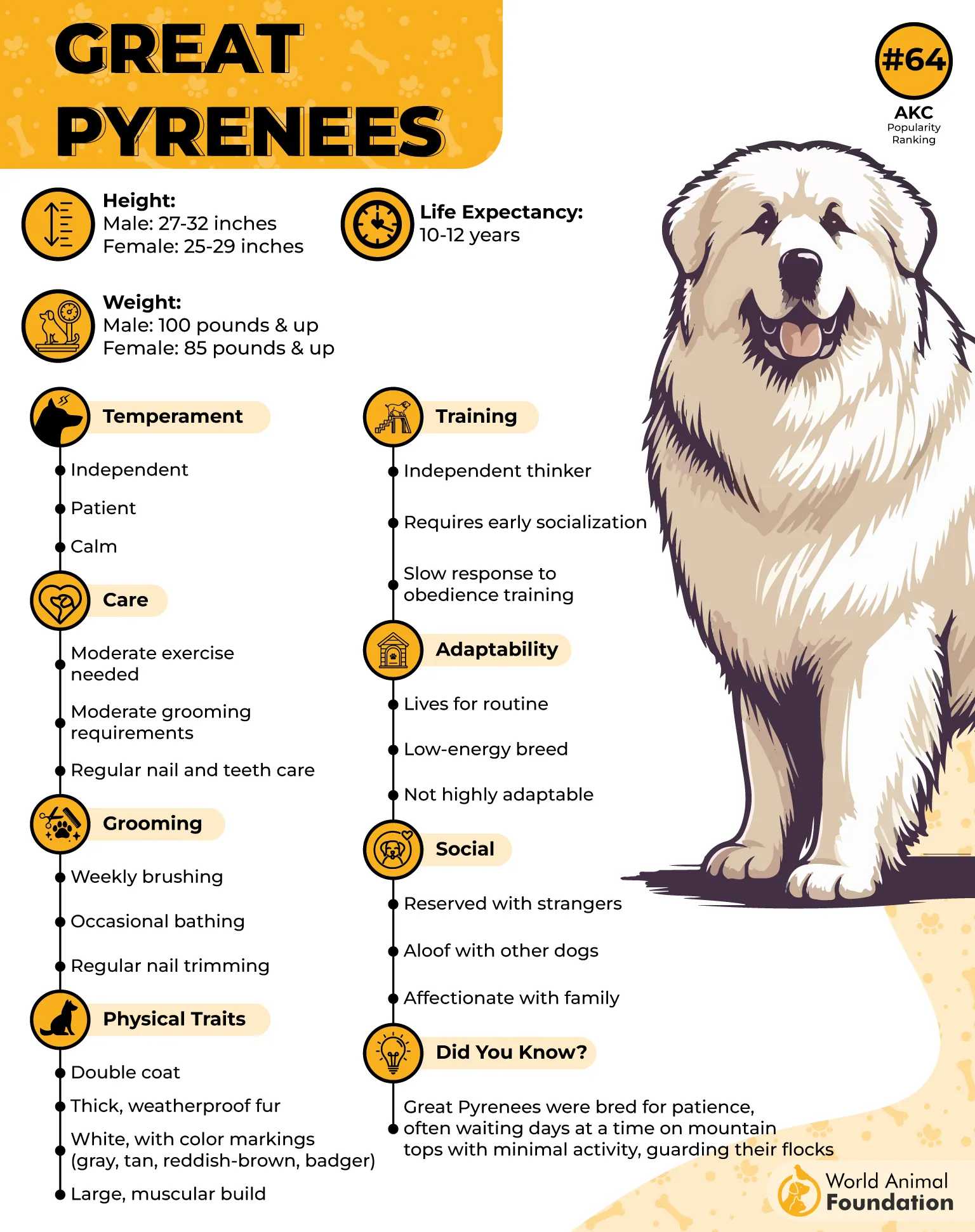
These dogs are patient, affectionate, and devoted to those they love, especially children. While usually calm and composed, they are quick to act when danger is near—moving with surprising speed and confidence.
Why They’re Good Farm Dogs:
Excellent natural guardians for livestock
Gentle and affectionate with family and animals
Fearless and dependable when facing predators
Adaptable to cold and harsh weather
Loyal and protective without being aggressive
Conclusion
Life on a farm or ranch wouldn’t be the same without the loyalty and hard work of these athletic canines. Whether guarding flocks or managing herds, their working heritage shines through in every task.
While some are reserved dogs that value personal space and quiet dignity, others thrive on movement and challenge, proving that not all farm dogs need constant attention to feel fulfilled.
Their intelligence and instinct make them remarkable partners, though their stubborn streak means a patient dog trainer is often essential. These loyal guardians balance independence with devotion, adapting to both work and family life.
Whether you admire their imposing size, respect their endurance through long periods of watchfulness, or appreciate their need for a little alone time, one thing is certain — in the dog world, these remarkable breeds embody strength, steadiness, and heart.
Apart from the ones mentioned above, there are other independent dog breeds as well that are worth checking out. These include the Anatolian Shepherd, Afghan Hound, Shih Tzu, Shiba Inu, Great Dane, Chow Chow, and Border Collie.


